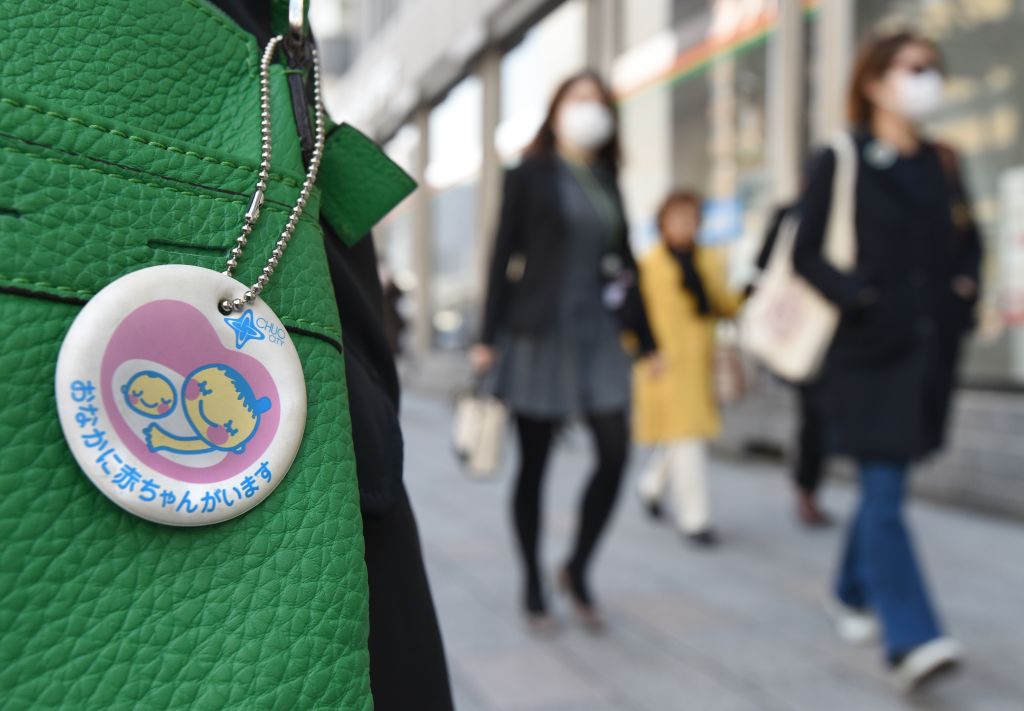
For the past five years, expectant mothers in a Japanese city have been receiving unsolicited advice from local authorities via a flyer telling them how to behave after giving birth—not for their own or their babies’ wellbeing, but to avoid annoying their husbands.
The colorful flyer with cartoon drawings highlighted behaviors that men “didn't like” in their wives, such as being “busy taking care of the baby and not doing chores” and “getting frustrated for no reason.” It also recommended that new mothers prepare their husbands’ lunch every day, thank men for doing basic household chores, and always have a smile on their faces.
Although the flyers have been distributed for several years in Onomichi, a city in Hiroshima Prefecture, it was only this week that it made the rounds on social media and sparked a wave of public anger so intense that local authorities apologized and pulled the plug.
On Tuesday, Onomichi Mayor Yukihiro Hiratani posted on both the the city’s government website and Twitter that the contents of the flyers were “not in line with the sentiments of pregnant women, childbearing mothers, and others involved in child rearing, and caused unpleasant feelings for many people.” He added that distribution would be discontinued because the flyers “contain expressions that promote attitudes and practices that stereotype gender roles.”
But the announcement did little to quell the barrage of criticism from social media users, many openly criticizing how such a misogynistic document could be distributed for so long.
“Don't just stop distributing it, please think about the fundamental chauvinism among the staff,” commented one Twitter user.
The controversial advice was taken from a survey of 100 fathers in the city in 2017, and local media reported that every year since 2018, authorities have mailed about 600 flyers to female residents in their seventh month of pregnancy.
Gender issues have become an increasingly urgent topic of concern in Japan, which ranks 125th out of 146 countries, well below other developed economies, in the World Economic Forum’s latest Global Gender Gap Index. Gender inequality is especially apparent in women’s participation in politics and the economy.
Read More: Japan Sends Male Minister to Lead G7 Meeting on Women’s Empowerment
In Japan, only around 13 percent of managerial jobs are held by women. Women also take up 68 percent of non-regular jobs, which usually offer lower wages and are less secure. Authorities have recognized this skewed workplace representation as a result of traditional gender roles at home, where women are expected to take on more household duties than men. Women in Japan are also often plagued by matahara, or maternity harassment, which describes pregnant women or new mothers being discriminated at work for their perceived unproductivity.
Recently, critical discourse on gender issues has been moving more into the public sphere, with gender stereotypes coming under increasing fire. In 2021, the head of the Tokyo Olympic organizing committee resigned after a sexist comment caused public outrage. Last year, a medical school in Japan was ordered to compensate 13 women after a government investigation found that it had unfairly rejected female students by judging them more strictly than men in entrance interviews.
The flyer in Onomichi reignited similar conversations about the harmful gender stereotypes that are still entrenched in Japanese society. By Wednesday evening, the flyer had racked up 156 complaint emails and 51 phone calls, Onomichi official Akira Takahashi told AFP.
“Women are working so hard that giving birth is already more than enough,” reads one comment on Twitter. “The first step is to inform fathers about the roles they should play and what they should do after giving birth.”
More Must-Reads from TIME
- Cybersecurity Experts Are Sounding the Alarm on DOGE
- Meet the 2025 Women of the Year
- The Harsh Truth About Disability Inclusion
- Why Do More Young Adults Have Cancer?
- Colman Domingo Leads With Radical Love
- How to Get Better at Doing Things Alone
- Michelle Zauner Stares Down the Darkness
Contact us at letters@time.com